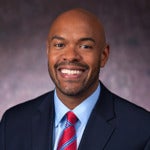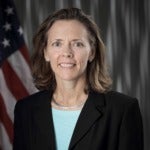Saving for Now, Later, and a Lifetime: A Summit on the Foundational Role of Liquid Savings
We know saving money is important. But a growing body of evidence puts a finer point on what kind of savings matter most, and what it takes to build and maintain them.
On June 16, Aspen Institute Financial Security Program hosted a digital summit to explore the latest research about how savings function, why so many US families have been unable to build them, and what leaders including federal and state policymakers, State Treasurers, employers, recordkeepers, and retirement plan providers can do to accelerate the development of a truly inclusive savings system.
Attendees received:
- New insights on what it really takes to build savings and who currently lacks access to critical tools and resources.
- The latest research on which savings solutions work, and why.
- A new Framework for Action with policy options for state and federal policymakers to enable work-based emergency savings.
- Perspectives from key government and private sector leaders working to make savings and financial cushions a reality for all.
This event is supported by the BlackRock Charitable Fund.
Summit Agenda
All times listed in Eastern Time Zone
1:00 p.m. Welcome and Opening Remarks
- Sohrab Kohli, Senior Manager and Markets Lead, Aspen Institute Financial Security Program
1:10 p.m. The Protective Role of Liquid Savings: Why They Matter and What it Takes to Build Them
The critical role of liquid savings in household financial security and well-being before and during the pandemic underscores their importance to society. But people cannot build and replenish liquid savings without routinely positive cash flow, and simple, affordable products and platforms that make it easy to set money aside. Moreover, short-term savings are often misunderstood to be a tradeoff—rather than a complement—to longer-term savings. This panel will discuss what a growing body of research reveals about the role of short-term savings in people’s lives, how households build and use them, and the barriers that undermine their efforts.
- Bradley Hardy, Associate Professor, American University
- Caroline Ratcliffe, Senior Economist, Consumer Financial Protection Bureau
- Steve Wendel, Head of Behavioral Science, Morningstar
- Sheida Elmi, Research Program Manager, Aspen Institute Financial Security Program (moderator)
1:50 p.m. Break
1:55 p.m. Following the Evidence: Applying New Research on Savings to Product and Policy Solutions
Interest in supporting peoples’ efforts to save for the short term is rising among business leaders, policymakers, and nonprofit service providers, due to growing recognition of the foundational role that liquid savings play in households’ financial stability and ability to achieve longer-term savings goals. At the same time, academics and researchers within think tanks and the financial services industry have been conducting groundbreaking research and pilot programs to learn from savings solutions designed to work at large scale. This panel will provide an overview of these recent learnings, including the latest data on how consumer saving responded to policy interventions during the pandemic, as well as discussing the implications of new research on financial product innovations for policy and product solution design.
- Fiona Greig, Managing Director and Co-President, JPMorgan Chase Institute
- Sid Pailla, Founder & CEO, Sunny Day Fund
- Jo Phillips, Director of Research and Innovation, Nest Insight
- Katherine Lucas McKay, Senior Program Manager, Aspen Institute Financial Security Program (moderator)
2:35 p.m. Break
2:40 p.m. Making Emergency Savings as Easy as Retirement Savings: Policy Solutions to Support Emergency Savings at Scale
With so much proof from the pandemic about the vital role of emergency savings in people’s financial lives, in this session we will discuss the policy levers that state and federal policymakers can pull to facilitate emergency savings at scale in America. Aspen FSP Director of Policy and Market Solutions, Karen Biddle Andres, will seed the discussion with an overview of a new emergency savings policy framework and will moderate a discussion with policy experts about the range of potential solutions that policymakers should consider as we seek to make emergency savings accessible, automatic, effective, and equitable for everyone.
- Shai Akabas, Director of Economic Policy, Bipartisan Policy Center
- Josh Gotbaum, Chair, Maryland$aves, Maryland Small Business Retirement Savings Board
- Melissa Sanchez, Policy Advisor, Office of Senator Cory A. Booker
- Karen Biddle Andres, Director of Policy and Market Solutions, Aspen Institute Financial Security Program (moderator)
3:30 p.m. Conclusion of Event
Speakers:
- Shai Akabas, Director of Economic Policy, Bipartisan Policy Center
- Karen Biddle Andres, Director of Policy and Market Solutions, Aspen Institute Financial Security Program
- Sheida Elmi, Research Program Manager, Aspen Institute Financial Security Program
- Josh Gotbaum, Chair, Maryland$aves, Maryland Small Business Retirement Savings Board
- Fiona Greig, Managing Director and Co-President, JPMorgan Chase Institute
- Bradley Hardy, Associate Professor, American University
- Sohrab Kohli, Senior Manager and Markets Lead, Aspen Institute Financial Security Program (Emcee)
- Katherine Lucas McKay, Senior Program Manager, Aspen Institute Financial Security Program
- Sid Pailla, Founder & CEO, Sunny Day Fund
- Jo Phillips, Director of Research and Innovation, Nest Insight
- Caroline Ratcliffe, Senior Economist, Consumer Financial Protection Bureau
- Melissa Sanchez, Policy Advisor, Office of Senator Cory A. Booker
- Steve Wendel, Head of Behavioral Science, Morningstar
Speaker Bios
 Shai Akabas, Director of Economic Policy, Bipartisan Policy Center
Shai Akabas, Director of Economic Policy, Bipartisan Policy Center
Shai Akabas is BPC’s director of economic policy. He has conducted research on a variety of economic policy issues, including the federal budget, retirement security, and the financing of higher education. Akabas joined BPC in 2010 and staffed the Domenici-Rivlin Debt Reduction Task Force that year. He also supported Jerome Powell, now Chairman of the Federal Reserve, in his work on the federal debt limit. For the past several years, Akabas has steered BPC’s Commission on Retirement Security and Personal Savings, co-chaired by former Senator Kent Conrad and the Honorable James B. Lockhart III. Akabas has been interviewed by publications including The New York Times, The Washington Post, and The Wall Street Journal, and has published op-eds in The Hill and The Christian Science Monitor. He has been featured as an expert guest several times on C-SPAN’s Washington Journal. Prior to joining BPC, Akabas worked as a satellite office director on New York City Mayor Michael Bloomberg’s 2009 campaign for reelection. Born and raised in New York City, he received his B.A. in economics and history from Cornell University and an M.S. in applied economics from Georgetown University.
 Josh Gotbaum, Chair, Maryland$aves, Maryland Small Business Retirement Savings Board
Josh Gotbaum, Chair, Maryland$aves, Maryland Small Business Retirement Savings Board
Hon. Joshua Gotbaum chairs the Maryland Small Business Retirement Savings Board, which is establishing Maryland$aves, the first state auto-IRA program to rely on employer incentives rather than noncompliance penalties. Josh is also a guest scholar in Economic Studies at The Brookings Institution and a director of Thornburg Investment Management. Previously Josh ran the Pension Benefit Guaranty Corp., was Asst Secretary of Treasury for Economic Policy and held senior and other positions on White House economic staffs, OMB, the Depts of Defense and Energy and the Senate Budget Committee. Outside government, he ran Hawaiian Airlines and the Sept 11th Fund and has been an investment banker, corporate director, consultant and investor. Originally from Evanston, IL, he lives with his family in Washington DC. In his spare time, he sings. More: https://brook.gs/2XEspyM
 Fiona Greig, Managing Director and Co-President, JPMorgan Chase Institute
Fiona Greig, Managing Director and Co-President, JPMorgan Chase Institute
Fiona Greig is a Managing Director and the Co-President at the JPMorgan Chase Institute, which delivers data-rich analyses and expert insights for the public good. She joined the Institute in 2014 after serving as the Deputy Budget Director for the City of Philadelphia for two years. From 2007 to 2012, Fiona was a consultant for McKinsey & Company where she consulted public and social sector clients on strategy, operations and economic development. In 2009 Fiona started and ran Bank on DC, a financial inclusion program for the District of Columbia.
Fiona has published research on topics including household finance, healthcare, labor markets and the Online Platform Economy, gender, and behavioral decision making. Her work has been widely cited in the media, including the New York Times, Wall Street Journal, NPR, and CNBC. Fiona has held adjunct professor appointments at the University of Pennsylvania and Georgetown University and holds a B.A. from Stanford University and a Ph.D. in Public Policy from Harvard University.

Bradley Hardy, Associate Professor, American University
Bradley Hardy is an associate professor and department chair in the Department of Public Administration and Policy at American University and nonresident senior fellow in Economic Studies at Brookings. His research interests lie within labor economics, with an emphasis on economic instability, intergenerational mobility, poverty policy, racial economic inequality, and socio-economic outcomes. His work examines trends and sources of income volatility and intergenerational mobility within the United States, with a focus on socio-economically disadvantaged families, neighborhoods, and regions. He also conducts research on the role of anti-poverty transfer programs such as SNAP food stamps, the earned income tax credit, and TANF for improving economic well-being among low income individuals and families. He is a co-editor at Contemporary Economic Policy, and is a member of the editorial boards of the Journal of Policy Analysis and Management and the Review of Black Political Economy. He serves on the executive board of the Association for Public Policy Analysis and Management, and is an elected member of the National Academy of Social Insurance.
 Sid Pailla, Founder & CEO, Sunny Day Fund
Sid Pailla, Founder & CEO, Sunny Day Fund
Sid Pailla is the CEO of Sunny Day Fund™ (SDF), a financial well-being company that makes saving for emergencies and pre-retirement life goals easy, accessible, and rewarding for both employees and employers. Sid has a vision to standardize emergency savings as a benefit for 100M+ American workers, who can’t or struggle to save towards retirement. Sid and his team are pursuing this vision driven by their own personal experiences with financial hardships.
Prior to Sunny Day Fund, Sid served as a Technology Strategy Executive with Accenture, where he worked with C-suite clients on M&A and product innovation, and was recognized as an Innovator of the Year. Before that, Sid advanced research on building inclusive technology driven by behavioral economics principles – and applied that research to water and telecommunication systems in India and South Africa. As part of this work, Sid founded HiComm, which expanded fee-free, SMS-based international group messaging to rural and poor South Africans. HiComm was the primary case study for Sid’s PhD in Systems Engineering at UVa., where he also received an MBA, and MS and BS in Systems Engineering.
Sid actively mentors students in their career goals and aspiring entrepreneurs with their individual ventures, from idea to first check. At home, Sid enjoys “improving” recipes, playing tennis, and adventuring with his wife and dog.
 Jo Phillips, Director of Research and Innovation, Nest Insight
Jo Phillips, Director of Research and Innovation, Nest Insight
Jo leads Nest Insight’s research programme, working collaboratively with partners across the sector to better understand the challenges facing savers on low to mid incomes, and to develop and test potential solutions to those challenges. Current projects include a trial of a hybrid ‘sidecar’ savings tool with five UK employers, a programme of work looking at how to support self-employed people to save and a series of projects looking at how to increase engagement in workplace pension saving to drive positive behavioural outcomes. She has over 15 years’ experience in social and commercial research across the public, private and third sectors and has led innovation work addressing a range of future opportunities in personal finance, pensions and beyond.
 Caroline Ratcliffe, Senior Economist, Consumer Financial Protection Bureau
Caroline Ratcliffe, Senior Economist, Consumer Financial Protection Bureau
Caroline Ratcliffe is a Senior Economist in the Office of Research at the Consumer Financial Protection Bureau (CFPB). At the CFPB, she co-led the research effort under the Bureau’s Start Small, Save Up initiative, which focused on helping U.S. consumers prepare for financial emergencies. Prior to joining the CFPB in 2019, she spent over 20 years at the Urban Institute where she was a Senior Fellow and Codirector of Urban’s Opportunity and Ownership Initiative. She also held a position as a Visiting Associate Professor at Georgetown University’s McCourt School of Public Policy. Her research has been published in numerous academic journals including Journal of Public Economics, Journal of Economic Behavior and Organization, and Journal of Consumer Affairs, and she published a chapter in the Oxford Handbook of the Economics of Poverty entitled “Is Poverty Incompatible with Asset Accumulation?” She testified before the U.S. House of Representatives, Committee on Agriculture, and the District of Columbia City Council on persistent childhood poverty. She has also provided testimony to the Senate Small Business and Entrepreneurship Committee on closing the racial wealth gap. Her work has been cited in hundreds of news articles, including the New York Times, Washington Post, Wall Street Journal, and the Economist, and she has appeared on both TV and radio. She holds a Ph.D. in economics from Cornell University.

Steve Wendel, Head of Behavioral Science, Morningstar
Dr. Wendel is a behavioral scientist who studies financial behavior and how digital products can help individuals manage their money more effectively. He serves as Head of Behavioral Science at Morningstar, where he leads a team of behavioral scientists and practitioners to conduct original research on saving and investment behavior. Stephen has authored three books on applied behavioral science, Designing for Behavior Change, Improving Employee Benefits, and Spiritual Design. He also founded the non-profit Action Design Network, educating the public on how to apply behavioral research to product development with monthly events in twelve cities. He has two wonderful kids and a wife, who don’t care about behavioral science at all.
Related Research
- The Cycle of Savings: What We Gain When We Understand Savings as a Dynamic Process
- The State of Financial Security 2020: A Framework for Recovery and Resilience
- The COVID-19 Pandemic, Retirement Savings, and the Financial Security of American Households, a joint research project from the Aspen Institute Financial Security Program, DCIIA, Morningstar, and NORC at the University of Chicago
- Eight Truths about Savings and Four Principles for Inclusion: From 2015 to COVID-19